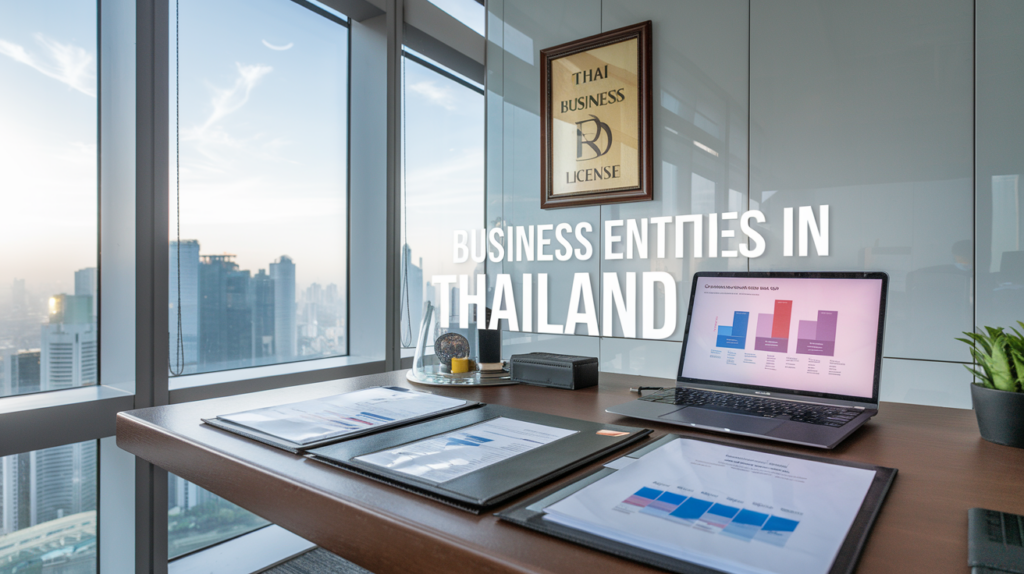Are you ready to embark on your entrepreneurial journey in Thailand? 🇹🇭 The Land of Smiles isn’t just a tourist paradise—it’s also a thriving hub for business opportunities. But before you dive in, there’s a crucial decision you need to make: choosing the right business entity.
From sole proprietorships to corporations, Thailand offers a variety of business structures, each with its own set of advantages and challenges. The entity you select can significantly impact your taxes, liability, and even your ability to attract investors. 💼 But with so many options, how do you know which one is right for you?
In this comprehensive guide, we’ll explore the various types of business entities in Thailand, including sole proprietorships, LLCs, corporations, and more. We’ll break down the key features of each structure, compare their pros and cons, and provide insights to help you make an informed decision. Whether you’re a solo entrepreneur or planning a large-scale operation, understanding these options is your first step towards business success in Thailand. Let’s dive in and discover which business entity could be your perfect match!
Overview of Business Entities in Thailand
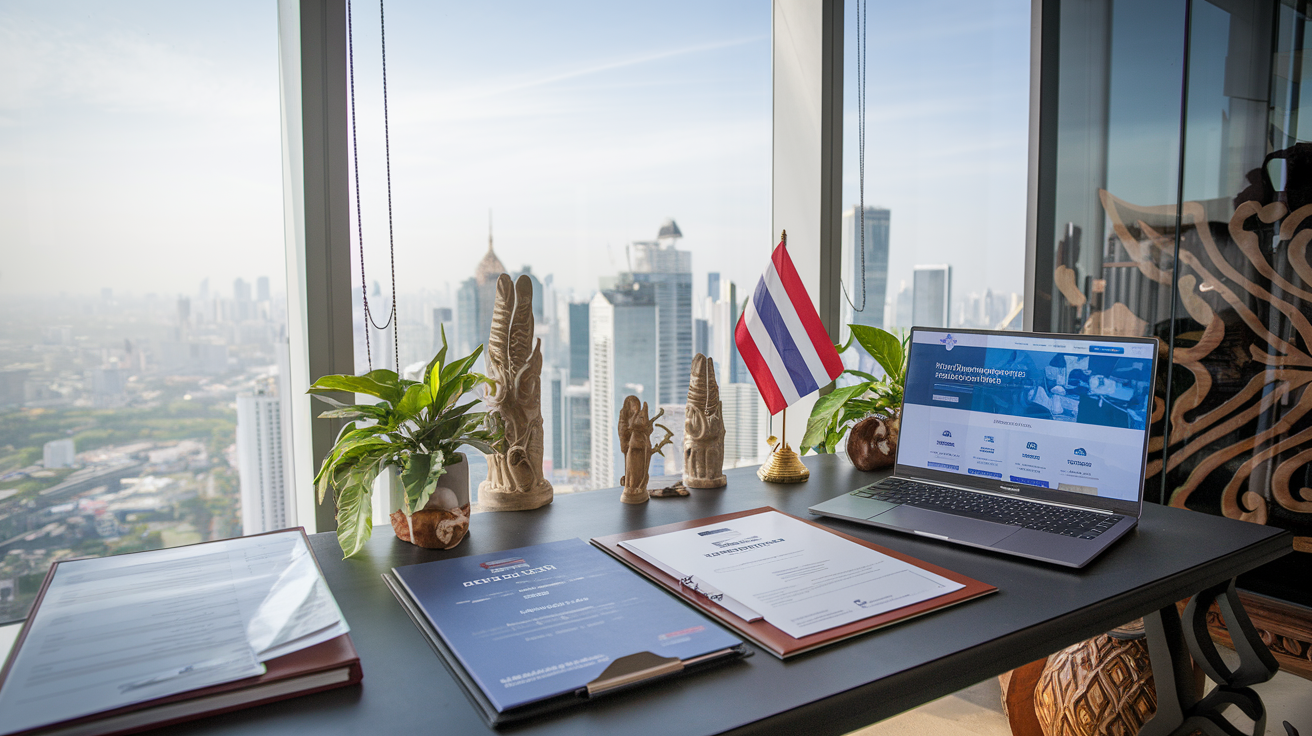
A. Legal framework for businesses
Thailand’s legal framework for businesses is governed by the Civil and Commercial Code, the Foreign Business Act, and various other regulations. This framework establishes the types of business entities available and sets the rules for their operation. Key regulatory bodies include:
- Ministry of Commerce
- Board of Investment (BOI)
- Revenue Department
B. Importance of choosing the right entity
Selecting the appropriate business entity is crucial for:
- Legal compliance
- Tax optimization
- Liability protection
- Operational flexibility
- Attracting investors
C. Key factors to consider
When choosing a business entity in Thailand, consider the following factors:
| Factor | Description |
|---|---|
| Ownership structure | Number of owners and their roles |
| Liability | Personal vs. limited liability |
| Taxation | Different entities have varying tax implications |
| Capital requirements | Minimum registered capital needed |
| Foreign ownership restrictions | Limitations on foreign participation |
| Business activities | Some entities are better suited for certain industries |
Other important considerations include:
- Ease of setup and registration
- Ongoing compliance requirements
- Ability to raise capital
- Exit strategies and business transfer options
Understanding these factors will help you make an informed decision about which business entity best suits your needs in Thailand’s business landscape.
Sole Proprietorship

Definition and characteristics
A sole proprietorship in Thailand is the simplest form of business structure, where a single individual owns and operates the business. This entity is not legally separate from its owner, meaning the owner has full control and responsibility for all aspects of the business.
Advantages for small businesses
- Low setup costs
- Simple registration process
- Full control over business decisions
- Flexible management structure
- Easy to dissolve or transfer ownership
Tax implications
Sole proprietors in Thailand are subject to personal income tax rates, which can be advantageous for small businesses with lower profits. The tax structure is as follows:
| Income Range (THB) | Tax Rate |
|---|---|
| 0 – 150,000 | 0% |
| 150,001 – 300,000 | 5% |
| 300,001 – 500,000 | 10% |
| 500,001 – 750,000 | 15% |
| 750,001 – 1,000,000 | 20% |
| 1,000,001 – 2,000,000 | 25% |
| 2,000,001 – 5,000,000 | 30% |
| Over 5,000,000 | 35% |
Registration process
To register a sole proprietorship in Thailand, follow these steps:
- Choose a unique business name
- Obtain a Tax ID from the Revenue Department
- Register with the Department of Business Development
- Apply for relevant licenses or permits based on your business activities
Now that we’ve covered the basics of sole proprietorships in Thailand, let’s explore another popular business entity: the Limited Liability Company (LLC).
Limited Liability Company (LLC)
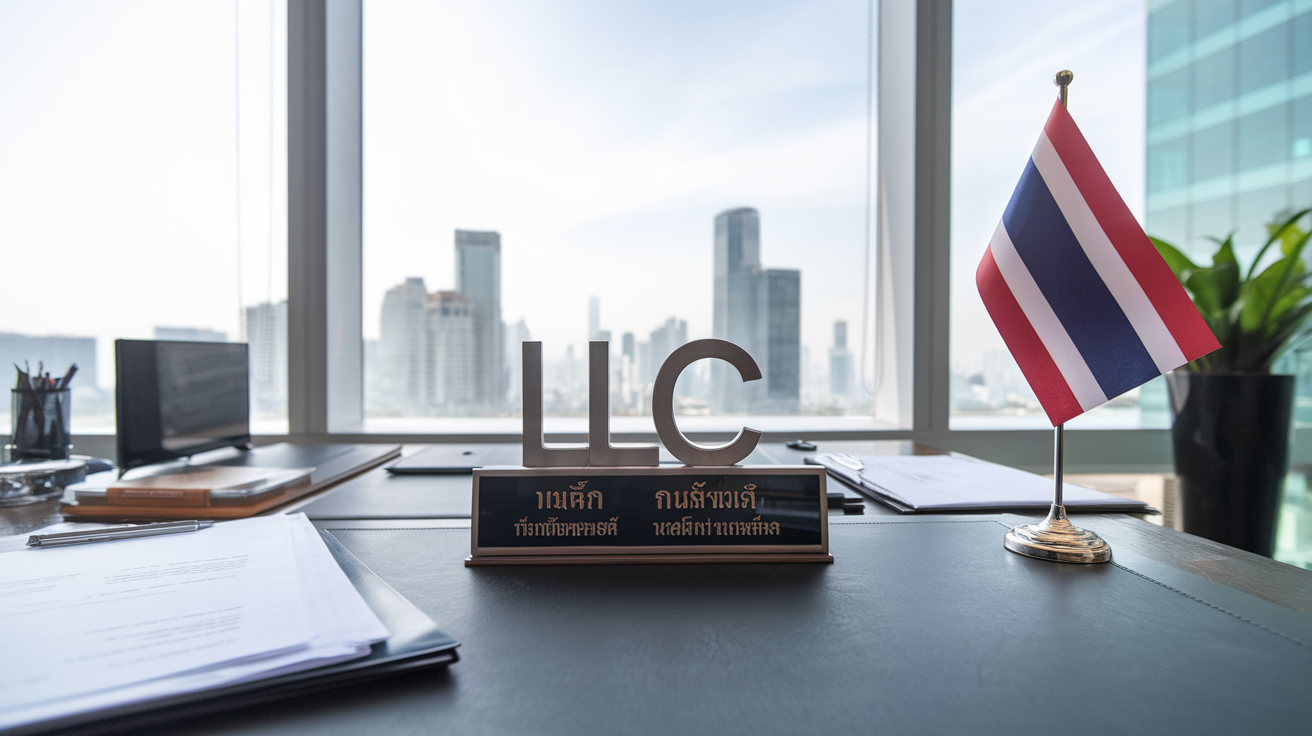
Structure and ownership
LLCs in Thailand, known as “Limited Companies,” are structured with shareholders and directors. The minimum requirement is three shareholders, and at least one director must be appointed. Shareholders’ liability is limited to their invested capital, providing a balance between personal asset protection and business flexibility.
Liability protection benefits
One of the primary advantages of an LLC in Thailand is the protection it offers to shareholders’ personal assets. This separation between personal and business liabilities encourages entrepreneurship and investment.
| Aspect | Benefit |
|---|---|
| Personal Assets | Protected from business debts |
| Legal Claims | Limited to company assets |
| Business Continuity | Unaffected by individual shareholder changes |
Tax considerations
LLCs in Thailand are subject to corporate income tax, currently at a rate of 20% on net profits. However, small and medium-sized enterprises may benefit from reduced rates. Additionally, LLCs must comply with VAT regulations and withholding tax obligations.
Formation requirements
To form an LLC in Thailand, the following steps are necessary:
- Reserve a company name
- File memorandum of association
- Hold statutory meeting
- Register the company with the Department of Business Development
- Obtain tax ID and register for VAT (if applicable)
Suitable business types
LLCs are versatile and suitable for various business types, including:
- Manufacturing and production companies
- Import-export businesses
- Service providers
- Technology startups
- Retail and e-commerce ventures
This structure is particularly appealing to foreign investors due to its flexibility and liability protection. However, certain restricted industries may require additional permits or majority Thai ownership.
Corporation

Types of corporations in Thailand
In Thailand, there are two main types of corporations:
- Private Limited Company
- Public Limited Company
| Feature | Private Limited Company | Public Limited Company |
|---|---|---|
| Shareholders | 3-100 | Minimum 15 |
| Stock trading | Not publicly traded | Can be listed on stock exchange |
| Minimum registered capital | 2 million baht | 20 million baht |
Shareholder structure
Thai corporations must have a minimum of three shareholders. For private limited companies, the maximum number of shareholders is 100, while public limited companies have no upper limit. Shareholders can be individuals or other legal entities, including foreign investors, subject to certain restrictions.
Corporate governance
Corporations in Thailand are required to have a board of directors responsible for managing the company’s affairs. Key governance requirements include:
- Annual general meetings
- Maintaining proper accounting records
- Filing annual financial statements
- Appointing auditors
Tax advantages
Corporations in Thailand enjoy several tax benefits:
- Corporate income tax rate of 20%
- Tax exemptions for certain industries through Board of Investment (BOI) promotions
- Double taxation agreements with many countries
Foreign ownership restrictions
While Thailand generally welcomes foreign investment, certain business activities are subject to foreign ownership restrictions:
- Foreign Business Act limits foreign ownership in specific sectors
- Some industries require majority Thai ownership
- Foreign-owned companies may need to obtain special licenses or permits
Partnerships in Thailand

A. General partnerships
General partnerships in Thailand are formed when two or more individuals or entities agree to conduct business together. These partnerships are relatively simple to establish and operate, making them popular among small businesses and startups.
Key features of general partnerships:
- No minimum capital requirement
- All partners have equal management rights
- Unlimited liability for all partners
- Profits and losses are shared equally unless otherwise agreed
B. Limited partnerships
Limited partnerships offer a blend of general and limited partner roles, providing more flexibility in terms of liability and investment.
Characteristics of limited partnerships:
- At least one general partner with unlimited liability
- Limited partners with liability restricted to their investment
- Limited partners cannot participate in management decisions
C. Differences in liability and taxation
| Aspect | General Partnership | Limited Partnership |
|---|---|---|
| Liability | Unlimited for all partners | Unlimited for general partners, limited for limited partners |
| Taxation | Partners taxed individually | Partners taxed individually, with some differences for limited partners |
| Management | Equal rights for all partners | General partners manage, limited partners cannot |
D. Registration procedures
To register a partnership in Thailand:
- Reserve a unique business name
- Prepare partnership agreement and other required documents
- Register with the Department of Business Development
- Obtain necessary licenses and permits
- Register for tax purposes with the Revenue Department
Now that we’ve covered partnerships, let’s explore foreign business structures in Thailand and how they differ from local entities.
Foreign Business Structures
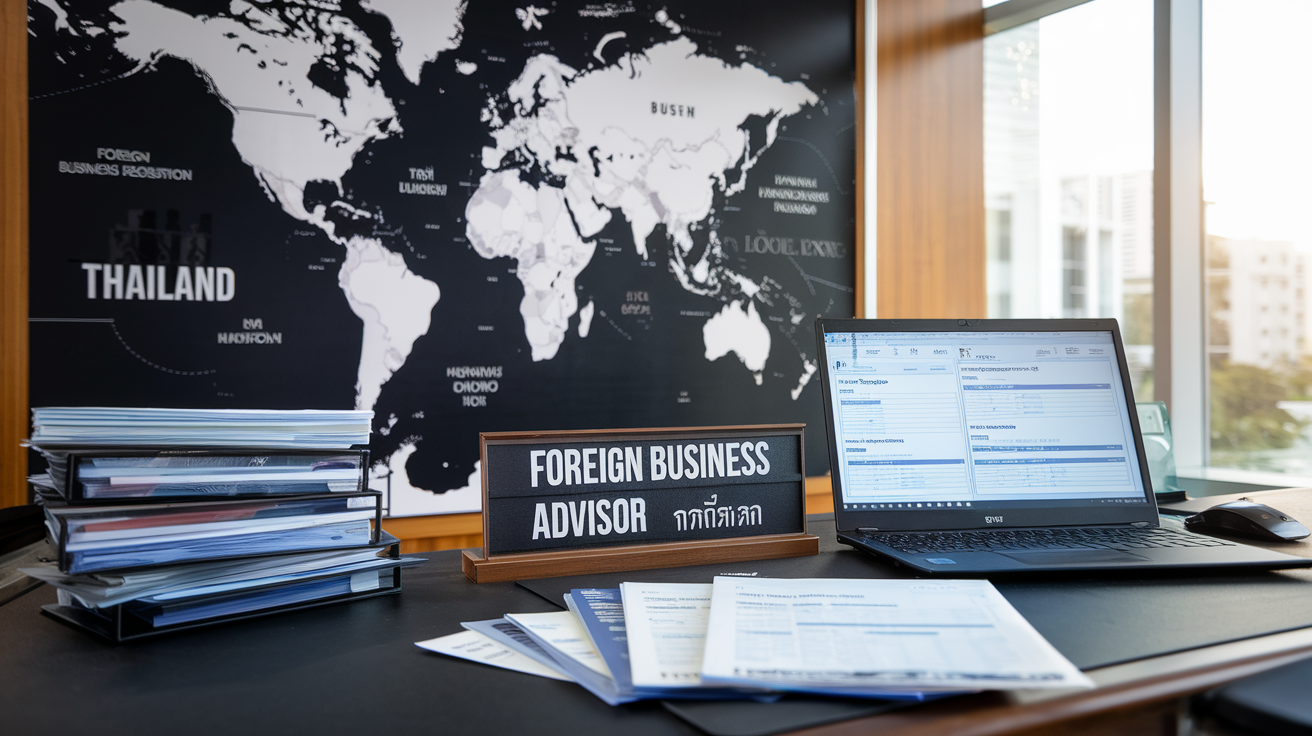
A. Board of Investment (BOI) promoted companies
BOI-promoted companies enjoy significant advantages for foreign investors in Thailand. These entities receive special privileges, including:
- Tax incentives
- Relaxed foreign ownership restrictions
- Streamlined visa and work permit processes
The BOI aims to attract foreign investment and boost Thailand’s economic growth. To qualify, businesses must align with the BOI’s targeted industries and meet specific criteria.
| Benefit | Description |
|---|---|
| Tax Exemptions | Up to 8 years of corporate income tax exemption |
| Ownership | 100% foreign ownership allowed in certain sectors |
| Land Ownership | Permission to own land for business operations |
| Visa Support | Expedited visa and work permit processes |
B. Representative offices
Representative offices serve as a low-risk entry point for foreign companies exploring the Thai market. Key features include:
- Limited scope of activities (market research, sourcing, quality control)
- Cannot generate revenue in Thailand
- Requires at least one foreign employee
C. Regional offices
Regional offices act as coordination centers for foreign companies operating in multiple Asian countries. They offer:
- Broader scope than representative offices
- Ability to provide services to affiliated companies
- Cannot generate revenue from local Thai companies
D. Branch offices
Branch offices allow foreign companies to conduct business operations in Thailand. Notable aspects include:
- Can engage in revenue-generating activities
- Subject to Thai corporate income tax
- Requires a minimum of 3 million baht in capital
Foreign investors should carefully consider these options based on their business objectives and long-term goals in Thailand. Each structure offers unique advantages and limitations, catering to different business needs and expansion strategies.
Comparing Business Entities
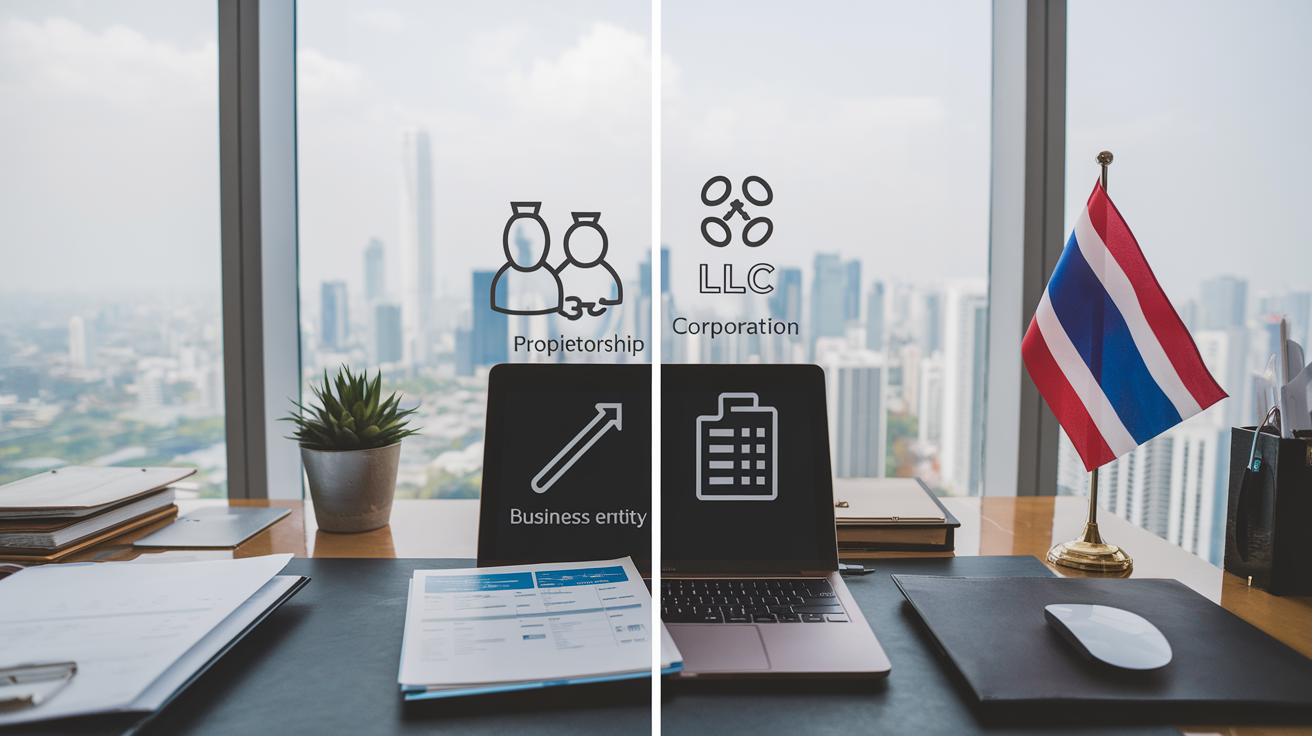
A. Ease of setup and operation
When comparing business entities in Thailand, ease of setup and operation varies significantly. Here’s a quick overview:
| Entity Type | Setup Complexity | Operational Ease |
|---|---|---|
| Sole Proprietorship | Simplest | Easiest |
| Limited Partnership | Moderate | Moderate |
| Limited Liability Company (LLC) | Complex | Moderate |
| Corporation | Most Complex | Most Challenging |
Sole proprietorships are the quickest to establish, often requiring minimal paperwork. In contrast, corporations demand extensive documentation and compliance with strict regulations.
B. Capital requirements
Capital requirements differ based on the business structure:
- Sole Proprietorship: No minimum capital requirement
- Limited Partnership: No statutory minimum
- LLC: 2 million baht for a foreign-majority owned company
- Corporation: 2 million baht for a public limited company
C. Tax implications
Tax considerations play a crucial role in entity selection:
- Sole Proprietorships: Taxed as personal income
- Partnerships: Partners taxed individually
- LLCs and Corporations: Subject to corporate income tax
D. Liability protection
Liability protection varies significantly:
- Sole Proprietorships: No separation between personal and business assets
- Limited Partnerships: General partners have unlimited liability, limited partners have limited liability
- LLCs and Corporations: Offer the strongest liability protection, shielding personal assets
E. Foreign ownership possibilities
Foreign ownership restrictions differ among entity types:
- Sole Proprietorships: Generally not available to foreigners
- Partnerships: Limited foreign ownership allowed
- LLCs and Corporations: Can be 100% foreign-owned in certain sectors, subject to restrictions
Now that we’ve compared various aspects of business entities in Thailand, let’s explore how to choose the right entity for your specific business needs and goals.
Choosing the Right Entity for Your Business

Assessing business goals and needs
When choosing the right business entity in Thailand, it’s crucial to start by assessing your business goals and needs. Consider factors such as:
- Short-term and long-term objectives
- Capital requirements
- Desired level of control
- Risk tolerance
- Tax implications
| Factor | Sole Proprietorship | LLC | Corporation |
|---|---|---|---|
| Control | Full | Shared | Board-governed |
| Liability | Unlimited | Limited | Limited |
| Taxation | Personal income tax | Pass-through or corporate | Corporate tax |
| Complexity | Low | Medium | High |
Considering industry-specific regulations
Different industries in Thailand may have specific regulations that impact your choice of business entity. For example:
- Tourism and hospitality sector may have restrictions on foreign ownership
- Financial services might require specific licenses and corporate structures
- Manufacturing businesses may need to comply with industrial estate regulations
Evaluating growth potential
Your business entity should align with your growth aspirations:
- Scalability: Corporations offer easier capital raising options
- Flexibility: LLCs provide a balance between growth and control
- Expansion: Consider entities that facilitate international operations
- Exit strategy: Some structures are more attractive to potential buyers
Seeking professional advice
Given the complexities of Thai business law and regulations, it’s essential to consult with experts:
- Legal advisors specializing in Thai corporate law
- Tax consultants familiar with Thai tax code
- Business strategists with experience in your industry
These professionals can provide tailored advice based on your specific situation and help you navigate the intricacies of establishing and operating a business in Thailand.
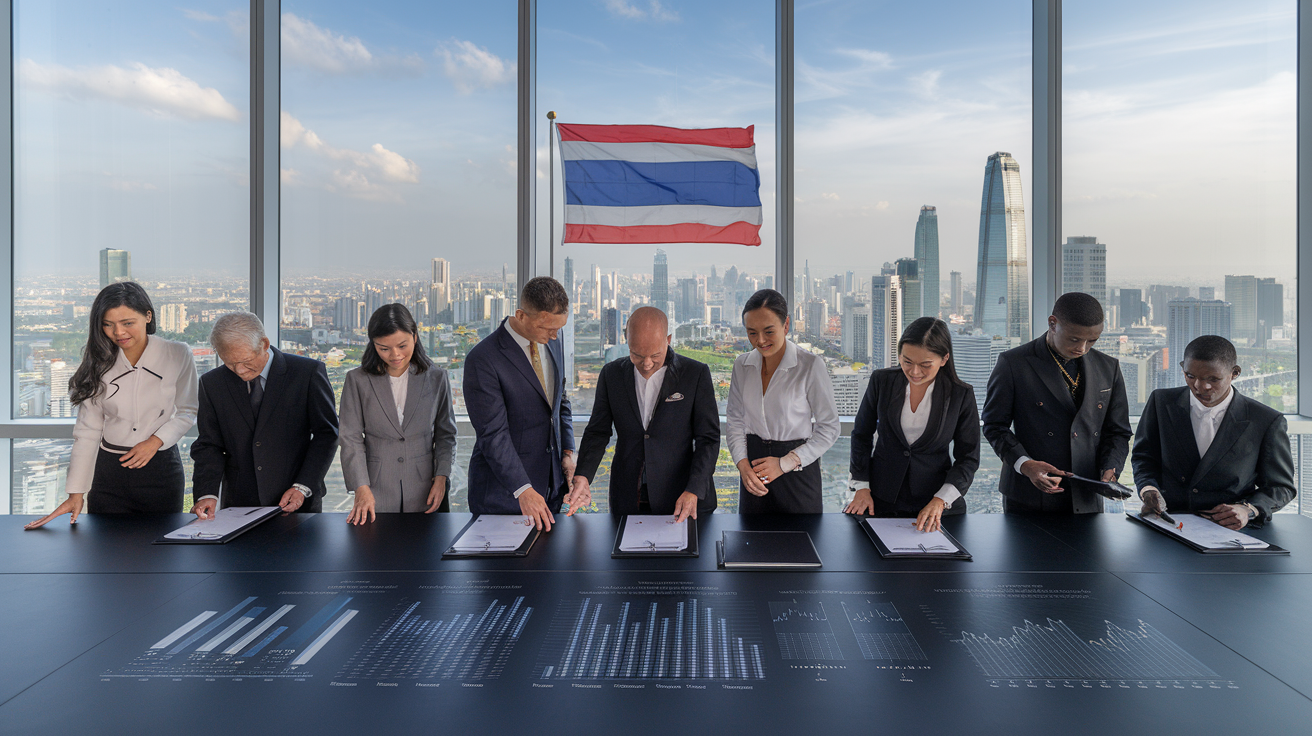
Thailand offers a diverse range of business entities for entrepreneurs and investors. From sole proprietorships to corporations, each structure comes with its own set of advantages and considerations. Understanding the differences between these entities is crucial for making an informed decision that aligns with your business goals and legal requirements.
When choosing the right business entity in Thailand, consider factors such as liability protection, tax implications, and the level of control you wish to maintain. Whether you’re a local entrepreneur or a foreign investor, taking the time to evaluate your options and seek professional advice can set your business on the path to success in Thailand’s dynamic economic landscape.

